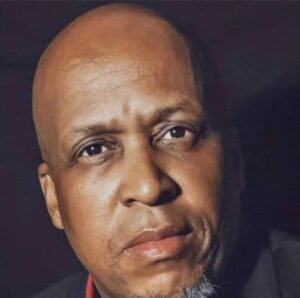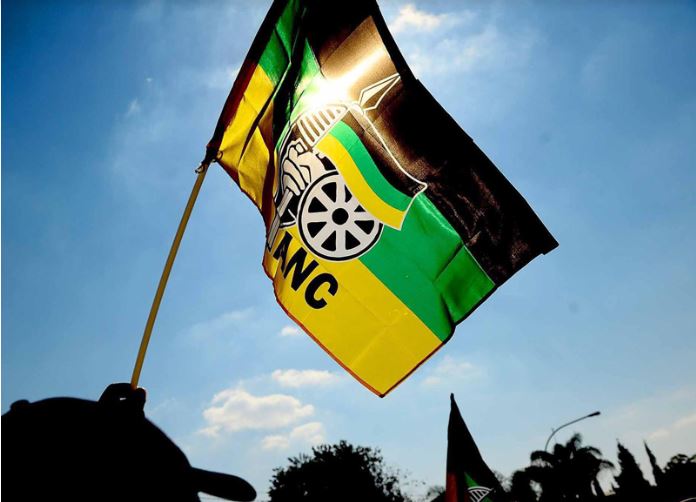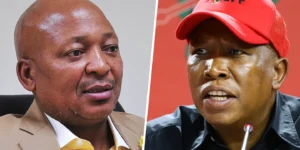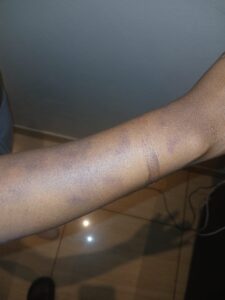By: Clyde N.S Ramalaine
Part 002. The era of the self-styled UK-trained intellectual’ gods.’
The era of the liberation gods gave us the first stage of an ANC in unaccountable- leadership; it also produced what I wish to postulate as the second of an observed four stages of unaccountability. The second stage comprises the self-styled intellectuals who would now emerge on the bedrock of such subliminal and unquestionable adoration.
This group, often called or referred to as the London or Sussex group, drawn from a cohort of exiles who found themselves studying at Sussex, always had their own idea of the ANC. It would not be unfair that their vision for the ANC was not born in S.A. but in London, and their challenge was to wait out their time for the liberation gods to wane. We know their vision for the ANC produced the 1987 Dakar Talks, where Mbeki, as assigned by Tambo, took the lead to meet with a group of White businesses and intellectuals. The issue was never the mandate to discuss with the proverbial enemy; the issue was the content of that particular conversation, meaning to contend Mbeki went on his own to meet apartheid beneficiaries is not truthful; on the other hand, to assume that the content of the discussions as explained in several source materials is what was mandated would also be stretching it.
Their assignment was to render the ANC in a new sense of exclusiveness of identity, at least measurable in leadership by the claim of superior logic understood in intellectualism. When one advances exclusivity in this instance, it is not to suggest the ANC was always open for all; anyone who knows the ANC’s history would see that it as an organisation from its inception constituted in leadership those who made up the elites. One can even contend that the ANC, in their prism, was to be led by an enclave of intellectually disposed superior minds. From this, the notion of Adekeye Adebajo’s 2016 book: Thabo Mbeki: The Rise and Fall of Africa’s Philosopher-King. Adebajo is not incorrect to assert Mbeki’s leadership in the frame of ‘the philosopher king.’ The intellectual gods of the ANC, with Mbeki as the anchor tenant, would posit themselves as the bastion of intellectual rigor, uncritically draped in kaftans of their superior authenticity of who and what the ANC is or should constitute.
The power of education lies in who trained one since one can only succeed by being exposed to and internalizing the culture of those training you. This type of intellectualism advanced straddled at least two spheres. One was, firstly, the celebration of certificated academic education. Secondly, it was also European-centred, euro-premised, and euro-compliant. This conflation of intellectual superiority was saturated with Eurocentric certificated education as its distinguishing identity marker that would set the intellectual gods apart from the gods of liberation defined by the Robben Island crowd. The ANC leaders that self-styled them in a postulated notion of intellectual gods would premise their rulership implicitly on the superiority over others they regarded as less informed, not truly representing the ANC, hence the idea of peasants. At another level, that superiority could not escape the element of European colonial culture. They would rule the ANC from the bedrock of that exposed Eurocentric and certificated academic claim.
We may then ask for the linkages to this advanced notion of unaccountability; just as the gods of ANC liberation came to dwell among us and we were in awe, the self-styled intellectuals in the ANC would now find a foothold to exert themselves. We could soon sense the tensions in the tripartite alliance, evidencing the SACP and COSATU leadership vocalizing their displeasure with being slighted by the tangible attitude of the intellectual gods. The era of the ANC intellectual gods remains seen as the functional advent of neo-liberal economic orthodoxy. The intellectual gods would style themselves in identifying the much-needed policy infrastructure, a necessary element that up until then did not exist for the new S.A. However, this is also their self-truth.
Nevertheless, it would increasingly evidence an intolerance of different views and opinions. From this bedrock, the ideas of Native enclave or cliques which, in Broederbond sense, would meet to define and shape their ANC in government. Critical for the intellectual gods became the issue of a centralized government that would ensure the ideas of the gods stand. One appreciates this better when one hears Kader Asmal in his Memoir Politics in My Blood shares:
as the months went by in Mbeki’s first term as President, a climate bordering on anxiety began to settle on the Cabinet. It was suddenly difficult to raise issues because you were unsure what kind of response there would be. You started to think very carefully about which battles to fight and which to let slide. As a minister, you rarely made any assessment or criticism of Mbeki if you could help it. You never knew what the response could be. We practiced the injunction maak toe jou mond (shut your mouth).’ Asmal hastens to say he does not think this climate was established consciously. While Asmal was an eyewitness with a seat in Cabinet, one would disagree and contend such centralisation of power and intolerance to opposing views was inherently part of the toolbox of the self-styled intellectual gods of the ANC was always the plan, be that of first or last resort.
This era birthed policy frameworks of ASGISA, NEPAD, and later BEE. On the BEE, for example, while it was articulated at the mouth of Mbeki, the concept was an Oppenheimer idea in origin. The Mbeki era gave us the delisting of South African multinationals such as Liberty Life and Old Mutual, among others. The intellectual gods always shared a dialectical tension I call more significant than the life image of the shadow of the liberation gods and the challenge of the people who did not go to exile or school in London. The power or, more, the attitude of the intellectual gods are no more prominent than in three critical aspects I wish to advance as evidence of unaccountability.
The intellectual gods and HIV/AIDS unaccountability
There is a consensus that no theme or topic has come to overshadow Mbeki’s reign more than the issue of South Africa’s HIV/AIDS attitude under his leadership. This is comfortably explained as the leadership of HIV /AIDS denialism also produced intellectual forced silence in the ANC. A cabinet insider witness is Kader Asmal, the Minister of Education. He contends: ‘South Africa’s strategy for combatting AIDS was shaped by antipathy on the part of Mbeki and his Health Ministers towards antiretroviral therapy.’ Asmal traces Mbeki’s stance back to his deputy president days when he highlights a meeting held on 22 January 1997. This special cabinet meeting played host to two University of Pretoria academics, namely Olga and Ziggie Visser. Their presentation informed Caibent of a new wonder drug [Virodene Po58], marking a solution that appeared to reverse full-blown Aids to HIV positive. Asmal contends that in the meeting, he was accustomed to academic peer review procedures at higher learning institutions and enquired whether the University of Pretoria approved the planned test – to which he only received an evasive answer. It is now common history that Pretoria University rejected any association with Virodene and its progenitors. He describes Mbeki and his health Minister Nkosazana Dlamini Zuma’s facial expressions as acolytes. Asmal goes on to assert: virodene’s champion was Mbeki himself. It is not far-fetched to conclude that Mbeki wanted to confirm Virodene as Africa’s advance in science and microbiology as part of the tools of his notion of African solutions for African problems. He would show the world that Africa can fix its challenges.
Swayed by the Visser’s snake oil, South Africans would hear Mbeki in a news interview in his own words on the Visser’s presentation to Cabinets: “the aids victims described what had happened to them as a result of the treatment. They were in the Cabinet room walking perfectly all right. It was a worthy thing to see because the general assumption is that if you get to a particular point with Aids, it really is a matter of time before you die.’
More poignantly is how Mbeki unilaterally insisted on availing funds for further research. Asmal notes: We never, ever, in my ten years in Cabinet, agreed there and then to write a cheque of millions of rands for any project. Nevertheless, we did then that day, and we wrote it out for snake oil. I was shocked. Later at the usual post-cabinet press conference, Mbeki said the government would look favourably on the researchers request for R3.7 million. My recollection is that it could have been four times as much.’
Meaning R16 million was made available for baseless research and piped dream stories. The intellectual gods and their unaccountability showed. Mbeki’s Virodene dalliance did not end in 1997 but continued into his first term. According to Asmal, contrary to the rumours then that youth firebrand Peter Mokaba was the author of the scandalous ‘Castro Hlongwane’ attack on retrovirals, it was subsequently revealed that Mbeki could have only written it. Thus the infamous Castro Hlongwane, Caravans Cats, Geese, Foot & Mouth and Statistics: HIV /Aids and the Struggle for Humanisation of the African’ document to be tabled in the NEC appeared to have been the pen and product, Mbeki.
Mbeki, the philosopher king, engaged in gerrymandering by claiming his scientific knowledge aided by virusmyth- an HIV/ Aids dissident website. We understand this better when we hear John Illife,
In 1994, the elected ANC was confronted with an epidemic that had no cure; would be expensive to treat; was fuelled by sex (and therefore fodder for racist views of black sexuality); and, most importantly, would undermine the ANC’s efforts to build a prosperous South Africa… The subject of HIV/AIDS was a dangerous topic for the South Africa’s new black government: it was an embarrassing, disturbing, complex, and seemingly unresolvable dilemma.
As Ndingi-Muvumba and Mottiar in their HIV AIDS and the African Renaissance South Africa’s Achilles heel’ an article published in ‘South Africa in Africa: The Post-Apartheid Era edited by Adekeye Adebajo and Chris Landsberg, notes:
Nevertheless, despite the cost of providing ARV dropping, the government refused to distribute these drugs through the public healthcare system. The Mbeki administration argued that nevirapine and other ARVs were unsafe and toxic. However, as early as December 1999, the health minister’s [Manto Tshabalal- Msimang] claim about the toxicity of ARVs had been debunked. A review of clinical trials and research had been submitted to the health minister stating that Nevaripine was a practical option for treating pregnant mothers. Nevertheless, the minister ignored the report. Meanwhile, the AIDS Advisory Council was renamed the Presidential Aids Advisory Council. The new body produced no definitive views on the links between HIV and AIDS or the efficacy of ARVs.
The impasse and ANC-led denialism on the way forward for South Africa on the HIV/AIDS crisis would see a reconfiguring in the balance of forces in the ANC and Tripartite alliance members with support from civil society groups and church formations. The TAC and COSATU agreed to a separate agreement on the Aids denialism of Mbeki’s leadership. We know that Mandela met with TAC’s Zacky Achmat, and more voices expressed dissent against Mbeki’s obdurate attitude. Mbeki could no longer count on his rhetoric of a global conspiracy because internal black voices told him he was playing Russian roulette with the lives of South Africans.
It was only in 2002 that Mbeki started to distance himself from the HIV/AIDS dissidents with a lame claim concession of a ‘failure of communication on our side.’ Notwithstanding the silence of Mbeki on HIV/AIDS in his 2006 SONA, since he only mentioned HIV and AIDS once in his entire speech, the defiant attitude of his Minister Manto Tsabalala – Msimang a proponent of alternate treatment and nutrition, continued as the August International Conference held in Toronto Canada would experience with a South African stall decorated in ‘dominated by woven baskets of plumps lemons, wilted beetroot, African potatoes and clumps of garlic.’ To underscore the levels of lack of leadership, despite the crisis, the South African National Aids Council for 2006 only met twice, as noted by Ndinga-Mvumba and Mottiar
The intellectual gods and fruitless and wasteful expenditure plausible corruption of a Armsdeal
The third issue that protests underscoring the subject of an ANC in unaccountable leadership makes up the infamous arms deal. While the arms deal emanates in conceptual premise from the Mandela era, it was actualised in the Mbeki dispensation. We learned from the Zuma charges how Mbeki was active in the negotiations, how the content of such information was altered and had Mbeki’s fingerprints on such. Even with the various commissions on the subject, the act of ANC leadership to prioritize the investment in arms was not justifiable, neither astute nor potentially a misspent. South Africa’s purchasing of arms should never have been one of the priorities of a chequered and divided South Africa.
There was no moral justification for the expenditure. Where was the shared wisdom of ANC members and South Africans to keep the ANC leaders in both organisation and state expressions accountable? Why does it not bother our collective conscience that these weapons until now are not in use and rotting away while we continue to pay for such? Why were Mbeki and his financial minister Trevor Manuel, not in person held accountable for this frivolous and wasteful expenditure? What stopped ANC members and South Africans from charging these leaders and bringing them to account? Perhaps the intellectual gods matured into their fiefdom of a power complex of aloofness that was untouchable.
To appreciate my contention of the self-styled intellectual gods in understanding the prevalent ANC cancer of unaccountability permitted to once again lean on Asmal when he asserts:
With Mbeki at the helm, the truly sensitive or difficult topics of state were kept off the agenda even at the level of South Africa’s executive branch of government. While power hovered in and around the Mandela Cabinet, by the time Mbeki had assumed the presidency, this kind of power resided elsewhere. Cabinet carried on with the day-to-day business of governance and the managing of our individual portfolios, but the difficult, controversial decisions, strategising, and policy formulation took place within the rapidly expanding Office of the President.
The intellectual gods and a unilateral decision to reject reparations claim attempt
In May, a group called the Apartheid Claims Task Force announced plans to file a lawsuit worth billions of dollars in New York against South African gold mining company Gold Fields for making miners work under” sub-human” conditions during the apartheid regime. One of the lawyers involved in the lawsuit is U.S. attorney Ed Fagan, who has already spearheaded a successful claim against Swiss banks on behalf of Holocaust victims.
The issue of keeping colonial and apartheid beneficiaries and, particularly, the multinationals accountable in a legitimate monetary reparation claim for South Africans was thus, in 2003, unilaterally vetoed by the philosopher king of the intellectual gods. At the time, it was reported, South African President Thabo Mbeki said the government has not been and will not be a party to litigation [in U.S. courts] against corporations that benefited from the apartheid system. Mbeki’s superior logic contends,
Many of the companies named in such lawsuits are today helping with South Africa’s development. We consider it completely unacceptable that matters that are central to the future of our country should be adjudicated in foreign courts which bear no responsibility for the well-being of our country and the observance of the perspective contained in our constitution of the promotion of national reconciliation.
Clearly the intellectual gods confuse or deem itself an inalienable right to conflate a legitimate claim with help. Perhaps more disturbing, why did Mbeki never see any need after 2003 to give South Africans the true statistics of the actual investment that he defined as help? This help was prognosticated by Mbeki and provided by truant multinationals, which made the multinationals much wealthier and thus was them always continuing to double and chase profits.
ANC members and South Africans appeared intimidated by the intellectual gods who took it upon themselves to act in the interest of all when they were never featured. They opposed such an idea. It would be this group’s choice not to pursue legitimate reparation claims. Until now, the superior wisdom of decision is to be explained.
The intellectual gods, though power-obsessed, were in full swing and did not allow anyone to challenge them. Suppose Mbeki rightfully raises what he does in the 17 pagers to Deputy President Mashatile. In that case, he may evidence a high dosage of selective memory as to how his era contributed its undeniable role in what the ANC today manifests in unfettered unaccountable.
- Why were Mbeki and his Health Ministers, the late Manto Tshabalala–Msimang and Nkosazana Dlamini-Zuma, and the intellectual gods never held to account for his HIV/Aids voyeurism?
- Why was his Minister, Manto Tsabalala Msimang, allowed to be as defiant as she was when South Africans died?
- Why was his Cabinet silent to challenge his actions, notwithstanding his right to an opinion?
- Why was Mbeki not personally liable for the lives lost in the HIV/Aids denialist era? After all, his escapades left South Africa in a maelstrom of indecision and wilful resistance while people died.
- Why did South Africans beyond TAC marches and voices of dissent fail to keep the ANC responsible for this error in leadership? Is it because the intellectual gods ruled with impunity and rejected accountability?
- Why were he and his finance minister Trevor Manuel never held accountable for his direct role in the scandal of an Armsdeal when his fingerprints were all over? This while Zuma’s R500, 000.00 Shabir Schaick negotiated deal is upheld by all and sundry the totality of an Armsdeal crime and corruption.
- Why was Mbeki allowed to stop the rightful reparations claim of South Africans against Multinationals?
- The cardinal question we must ask is, who of the intellectual gods and their families were beneficiaries of the decision to oppose the legitimate and rightful reparation claim?
- Where was the decision not to demand reparations ever in public discourse discussed, and who decided that South Africans are contending with the multinationals redeeming themselves in what Mbeki deems helping S.A. already?
- Where at the time was the inventory proof for these multinationals’ involvement in helping S.A.
One must surmise this was the era of the self-styled Europe trained intellectual gurus who always had their own idea of an ANC in organisation and national governance of South Africa.

Political Analyst, Theologian, Lifelong Social and Economic Justice Activist, Author, Published Poet and Freelance Writer.







